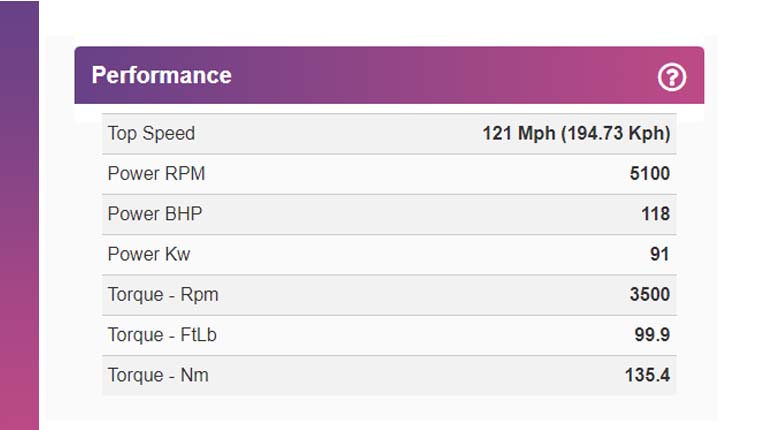Car Value Check is crucial for accurately calculating your vehicle’s worth. Whether selling or buying, this car value check prevents undervaluing or overpricing. You can use online free car value check from reputable websites such as The Auto Experts and Car Analytics. These platforms allow you to enter your Car’s details, including its make, model, year, mileage, and condition. They then provide an estimated car value based on their database and market trends. This can give you an idea of the current market value for similar vehicles.
Table of contents
Why is car value check important?
Car value check guides sellers in setting fair prices, attracting potential buyers, and facilitating quicker sales. For buyers, it ensures they don’t overpay, getting good value for their investment. Additionally, understanding a car’s value aids negotiations, resulting in favourable deals.
Ignoring a car value check risks financial loss. Overpricing a car might deter buyers, prolonging its sale and possibly requiring price reductions. Underpricing means losing out on potential profit. Buyers might unknowingly pay more than a car’s actual worth. Incorporating a car value check into your transaction process safeguards against misinformed decisions.
If you want to know about how to calculate VAT? You can learn How to value goods for import VAT from the gov.uk website and get detailed knowledge.
What is a car valuation? Why check the value of my car?
Car valuation in the UK refers to determining the estimated Car’s worth or the market value of a vehicle. It involves assessing the make, model, age, mileage, condition, and optional vehicle extras to provide an approximate value.
Checking your Car’s value in the UK is essential for several reasons.
- Selling or buying a car: If you are planning to sell your Car, knowing its value helps you set a realistic asking price. On the other hand, if you’re looking to purchase a used car, understanding its value ensures you’re paying a fair price and not overpaying.
- Insurance purposes: Car valuation is crucial when determining the appropriate insurance coverage and premiums. Insurance companies often consider the value of the vehicle to calculate the insurance cost and establish the payout in case of theft, damage, or total loss.
- Financing or refinancing: If you’re seeking a car loan or refinancing an existing one, lenders may require a valuation to determine the loan-to-value ratio. It helps them assess my Car’s worth and ensure the loan amount is appropriate.
- Vehicle tax and registration: The Car’s value affects the vehicle tax amount (also known as road tax) you must pay.
What do I need to know about car valuation?
Regarding car valuation in the UK, there are several factors to consider. Here’s what you need to know:
- Market Value: The market value of a car is determined by supply and demand. Factors such as the vehicle’s age, make, model, mileage, condition, and desirability play a significant role in determining its market value.
- Disease and History: The condition of a car dramatically affects its value. Any damage, wear and tear, or mechanical issues can decrease its worth. Additionally, a comprehensive service history and a clean record, with no accidents or outstanding finance, can positively impact the valuation.
- Mileage: Generally, the lower the mileage, the higher the Car’s value. High-mileage vehicles are usually considered to have undergone more wear and tear, potentially requiring more maintenance and repairs in the future. However, extremely low mileage can also negatively impact value, as it may indicate the Car has been primarily inactive or poorly maintained.
- Get Multiple Valuations: To get a more accurate understanding of a car’s value, it’s advisable to obtain valuations from multiple sources, such as online car valuation tools, dealerships, and independent car valuation experts. This will help you gauge the average market value and negotiate more effectively.
If you plan to buy a used car in the UK:
- Vehicle history check: Obtain a comprehensive vehicle history report, such as an HPI or AA Car Data Check. This report will provide you with essential information about the Car’s history, including any outstanding finance, previous accidents, mileage discrepancies, and whether it has been stolen or written off. It helps you make an informed decision and avoid potential issues. The Auto Experts offer a trusted vehicle history check report for £9.99 for a single check for your Car that searches millions of vehicles annually.
- MOT and service history: Check the Car’s MOT history online to verify its roadworthiness and that it has been regularly maintained. It’s a good sign if the seller can provide these documents.
- Price Research: Research the market value of the specific make, model, year, and mileage of the Car you are interested in. Various online platforms, classified websites, and free car valuation tools can help you gauge the typical price range for similar vehicles. This information will empower you to negotiate a fair price with the seller.
- Vehicle condition: Thoroughly inspect the Car’s condition inside and out. Look for signs of rust, dents, scratches, or any other visible damage. Check the tyres for wear and ensure they are roadworthy. Test all the electrical components, such as lights, wipers, and infotainment systems. Pay attention to the engine sound, transmission smoothness, and overall driving experience during the test drive.
- Ownership transfer and documentation: Ensure that the seller has all the necessary documentation, including the V5C logbook, service records, MOT certificates, and any other relevant paperwork. Verify that the information on the documents matches the details provided by the seller. Follow the proper procedures for transferring ownership, including notifying the DVLA (Driver and Vehicle Licencing Agency) of the change.
If you plan to sell a used car in the UK:
- Vehicle condition: Ensure that your Car is in good condition before putting it up for sale. Clean the interior and exterior, fix any minor issues, and consider employing detailing services to enhance its appeal. A well-maintained and presentable car is more likely to attract potential buyers.
- Documentation: Gather all the necessary paperwork related to your car, including the V5C logbook, MOT certificates, service history, and any other relevant documents. Having receipts for any aftermarket modifications can help justify your asking price. Sites focusing on automotive customization suggest that you can recoup less than 50% of what you’ve spent on mods. Presenting these receipts as proof will help maximize the amount you can get back.
- Accurate valuation: Determine a fair and realistic asking price for your Car. Conduct market research to determine the current prices of similar vehicles in your area. Consider the make, model, year, mileage, condition, and any additional features or upgrades. Online car valuation tools and classified websites can assist you in estimating a reasonable price range
- Prepare for test drives: Be prepared to allow potential buyers to test drive your Car. Ensure that you have the necessary insurance coverage and that the Car is safe and roadworthy. Accompanied the buyer during the test drive and followed all the required safety precautions.
How to check what my car is worth?
First of all, you know what the true worth of your Car is after you get the knowledge about how much it is worth. To check the value of your used Car in the UK, you can use the following methods:
- Online car valuation tools: Several reputable websites offer online car valuation tools specifically designed for the UK market. The Auto Experts tool requires you to enter details about your Car, including make, model, year, mileage, condition, and optional features. The tool then provides an estimated value range based on your information.
- Compare listings: Look for similar used cars listed on online marketplaces, classified websites, and dealer websites. Compare vehicle prices with your make, model, year, and mileage. Consider factors such as condition, service history, and optional features. This comparison will indicate the current market prices for similar cars and help you gauge your Car’s value.
- Seek professional appraisals: Consider getting a professional inspection from a qualified car appraiser or valuer. They have expertise in evaluating used cars and can provide a more accurate assessment of your Car’s worth based on its specific condition, service history, and market demand. Professional appraisals may involve a fee, but they can provide valuable insights when selling your Car.
- Consider local market factors: Consider regional factors that can affect the value of your used Car. Prices can vary depending on the location and local market conditions. Factors such as demand, the availability of similar cars, and local competition can influence the value of your Car.
Conclusion
My Car Worth website provides car valuations based on various factors such as the make, model, year, mileage, and vehicle condition. The website generates an estimated value for your Car by entering these details.
Therefore, while My Car Worth can give you a rough idea of your Car’s Worth, it’s recommended to consult multiple sources, such as other car valuation websites, dealerships, and independent experts, to better understand your Car’s value. This will help you make a more informed decision when buying or selling a car.
Answering your questions
How can I find out the value of my car?
The Auto Experts website is best for finding the exact value of your car at £2.99. Go to the website and enter your car’s valid registration number to find out what your car is worth at today’s stock market price! Our Reports include factors like the car’s make, model, year, mileage, condition, and local market trends.
How does the car’s condition affect its value?
The condition of your car plays a significant role in determining its value. Factors like exterior and interior wear and tear, mechanical condition, history of accidents or repairs, and overall cleanliness impact its market worth.
How can I sell my car for its estimated value?
To maximize your chances of selling your car for its estimated value, ensure it is in good condition, address any necessary repairs or maintenance, gather relevant documentation (like service records), and create a compelling listing with clear photos. Be prepared for negotiations with potential buyers.
What is a car value check?
A car value check is a process of determining the current market value of a vehicle. It helps car owners, buyers, and sellers understand how much a car is worth in the current market based on its age, condition, make, model, mileage, and other relevant details.
What factors influence the value of a car?
The value of a car is influenced by factors such as its age, make, model, mileage, overall condition (including any damage or wear), service history, market demand, location, and additional features or modifications.
How often should I check my car’s value?
Checking your car’s value periodically, especially before selling or purchasing a vehicle, is a good practice. Values can fluctuate due to market trends, so staying updated helps you make informed decisions.








